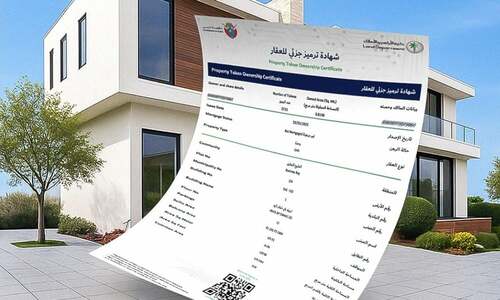Prypco Mint’s Tokenized Real Estate Venture Gains Traction in Dubai
Prypco Mint, recognized as the first tokenized real estate investment platform in the MENA region with backing from the Dubai Land Department (DLD), recently witnessed its initial property listing achieve full funding within a single day. This accomplishment is being hailed as a regional milestone for swiftness, robust demand, and strong investor confidence.
The listed property garnered interest from 224 investors representing over 40 nationalities. Notably, 70% of these investors were new entrants to Dubai’s real estate market, with an average investment of AED 10,714. Prypco emphasized that this reflects the platform’s broad appeal and the increasing desire for easily accessible, technology-driven real estate opportunities within the region.
Amira Sajwani, CEO of Prypco, stated that the rapid funding of their first property highlights both the strength of the concept and the evident market demand for more streamlined and accessible investment avenues.
The initiative continues to attract considerable attention, with a waiting list exceeding 6,000 requests. The DLD noted that this surge in demand underscores Dubai’s growing attractiveness to emerging segments of global investors who are in search of innovative and approachable property ownership models.
Understanding Tokenized Real Estate
What is it?
Essentially, tokenization enables individuals to possess a stake in prime Dubai real estate ventures through blockchain-based tokens, with investments starting from AED 2,000.
Joseph Dahrieh, Managing Principal at Tickmill, explained that a tokenized real estate project involves transforming ownership rights or the economic worth of a physical property into digital tokens. These tokens are then recorded and traded on a blockchain platform. He further elaborated that this method facilitates fractional ownership, allowing a property to be divided into numerous smaller, more affordable shares represented by the tokens. This strategy is intended to boost liquidity by simplifying the buying and selling of shares, diminish entry barriers for investors by decreasing the required minimum investment, and improve transparency and security through the inherent characteristics of blockchain records.
According to Prypco, their platform converts physical real estate assets into secure digital tokens, each connected to a legally recognized Property Token Ownership Certificate issued by the DLD. This bestows upon investors the same rights as traditional property ownership, minus the associated administrative complexities, while also providing benefits such as rental income, capital appreciation, and liquidity.
The DLD has affirmed that the certificate it provides ensures a clear and secure investment experience, free from the difficulties of conventional property management. They added that investors will profit from both rental income and the potential for capital appreciation stemming from property value increases. Currently, the platform is available exclusively to UAE ID holders, with plans for global expansion in the near future.
The project is a collaborative effort between the DLD, which regulates physical real estate assets, and the Virtual Assets Regulatory Authority, which oversees digital assets.
The DLD has stated that this collaboration ensures a comprehensive and transparent regulatory framework for this novel approach to property investment.
All transactions are conducted solely in UAE Dirhams, and crypto currencies are not used during the pilot phase. The platform enables investors to access detailed property information, including pricing, risk factors, technical specifications, and minimum investment requirements.
In the current phase, the Central Bank of the United Arab Emirates will monitor the establishment of corporate accounts linked to real estate tokenization through the Client Money Account system. This banking structure is designed to protect investor funds.
Impact on Dubai’s Property Sector
Dahrieh stated that tokenization represents a significant shift aimed at making investment more accessible and improving market dynamics. He believes it lowers investment barriers, attracting a new wave of retail and global investors. This initiative is projected to enhance market liquidity, transparency, and transaction efficiency, while also providing developers with new avenues for funding. Strategically, this aligns with the Dubai Economic Agenda D33 and the Real Estate Strategy 2033, with the goal of solidifying Dubai’s position as a global innovation hub.
He also added that the DLD anticipates that tokenized assets could reach AED 60 billion, or 7% of the market, by 2033.
This project is part of the Real Estate Evolution Space Initiative, previously introduced by the DLD. The initiative strives to establish Dubai as a global leader in PropTech and artificial intelligence. The DLD asserts that the initiative cultivates a flexible legislative environment and encourages the attraction of talent and start-ups within the real estate sector, further boosting Dubai’s global competitiveness.



Comments (0)
No comments yet. Be the first to comment!
Leave a Comment